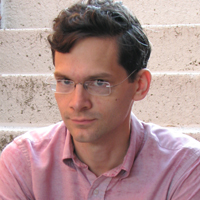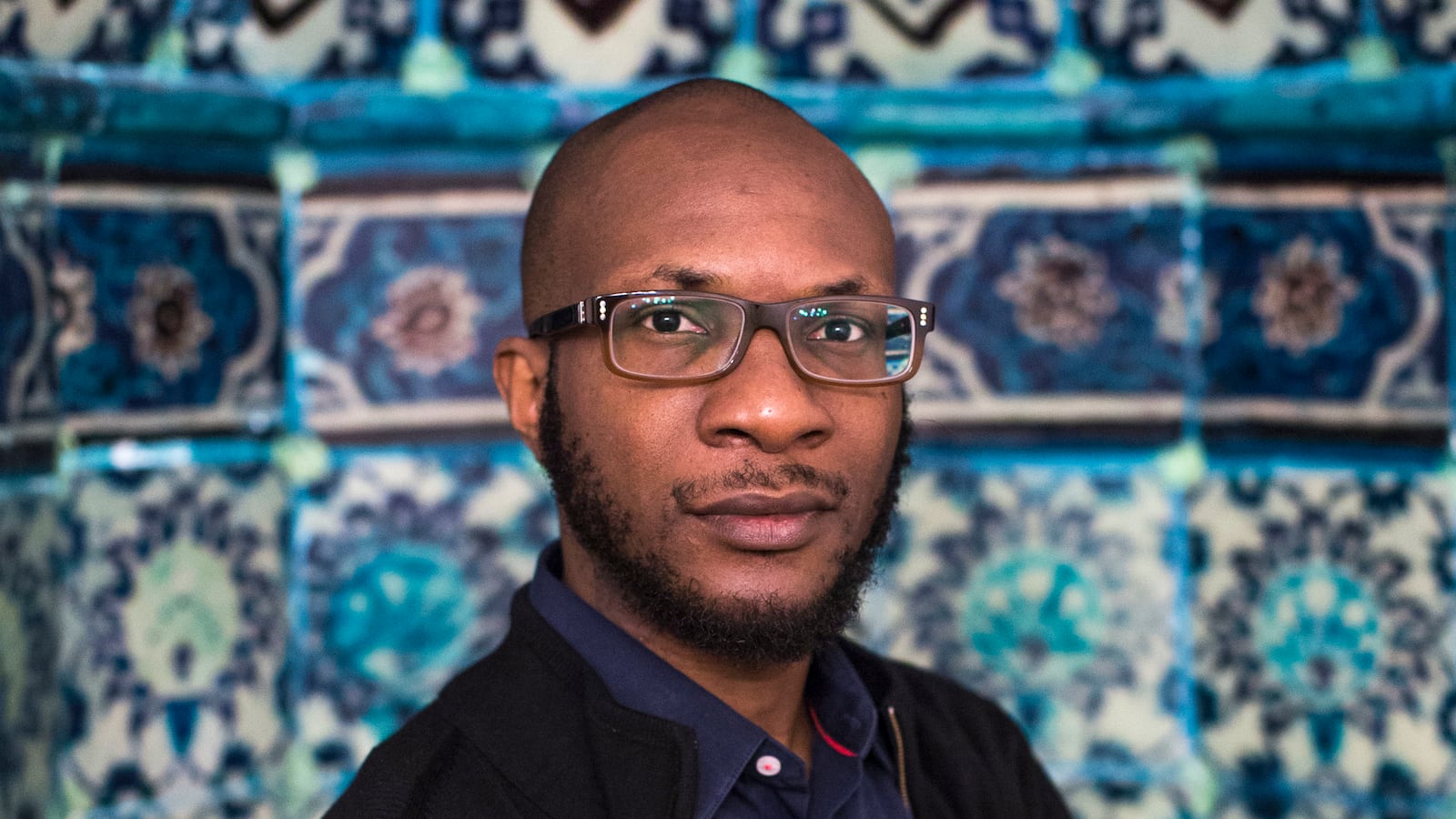According to some surveys, Nigeria is the happiest and most optimistic country in the world. But the BBC estimates that 61 percent of the population lives in poverty. Sectarian violence (between Muslims and Christians) killed hundreds in 2010. Though the Nigerian economy is arguably the biggest in Africa, it is also profoundly corrupt. Nigerians say they are happy. But there is some reason not to believe them.
Enter Teju Cole, a young Nigerian-American writer who believes in telling the worst. “We wish to be spared” the horror, he wrote in his phenomenal 2011 debut, Open City: “It is a common wish, and a foolish one: no one is spared.” These words are spoken by Open City’s narrator, Julius, a young Nigerian doctor who likes to go on walks in Manhattan, to relax.
Initially he describes his walks as therapy. But he’s drawn to what disturbs him: blind men, racist tourists, dying retail chains. On the day of the New York City marathon, for example, Julius characteristically dodges the eager crowd of spectators around Columbus Circle by dropping in on an old professor of his, a dying Japanese-American who was interned during World War II and who laments the general decline in poetry memorization.
Later, on his way home, Julius stops into a Tower Records and hears Mahler’s Das Lied von der Erde playing. He loses all interest in shopping, and feels entranced, “swaddled in a private darkness,” and waits for the symphony’s “emotional core,” its final movement. “The birdsong and beauty, the complaints and high-jinks of the preceding movements, had all been supplanted by a different mood, a stronger, surer mood.” This is Cole teaching us how to read his book. Its emotional core is also sure, and serious, entrancing and relatively dark. When Julius reports that the day after the Mahler benefited from “some new intensity,” we identify.

Cole’s intensity is contagious and even narcotic. His focus on the grim and the disturbing is beautiful, and becomes rhythmic, atmospheric, and addictive. He’s perfected it on Twitter, where he molds one-line obituaries into toothpick-sized poems.
His Nigeria book, Every Day is For the Thief, was actually written in 2006, prior to Open City. Cole challenged himself to write a chapter every day, and posted these entries on a blog. Later, a Nigerian publisher showed interest, and he revised his posts for book publication in Nigeria.
The American edition retains the piecemeal lightness of the original experiment. But though it is a shorter, less immersive book than Open City, it is written in Cole’s same unmistakable, attitudinal, morally articulate voice. Indeed Cole’s idealism is perhaps more grounded, in this book.
The opening scene finds Cole forced to bribe a consular official to get his visa: “It is what I have dreaded: a direct run-in with graft. I have mentally rehearsed a reaction for a possible encounter with such corruption at the airport in Lagos. But to walk in off a New York street and face a brazen demand for a bribe: that is a shock I am ill-prepared for.”
In the lightly fictionalized, episodic travelogue that follows, Cole shows again and again how graft eats at the fabric of daily life in Nigeria’s capital. As in Open City, he is alert to whatever dims and deepens the shiny image of the city he’s exploring.
The unnamed Nigerian-American narrator is a medical student—plausibly a younger version of Open City’s Julius—visiting Lagos after a 15-year hiatus. He left when he was 18, buying a plane ticket with his own money and breaking with his mother, who is white. He knows that she has since moved to California, but that is all—they don’t correspond. This separation is the fictional meat of the novel, but we learn about it only when the book is three-quarters through. There is a similarly seismic revelation at the very end of Open City, when the suggestion that Julius raped a friend and then suppressed the memory shakes our faith in him. In this way, Cole’s books are like fast friendships—you spend an aimless day together and then test the friendship with risky, out-of-nowhere confessions. Sometimes even his paragraphs have this scorpion-like shape—as the anodyne opening description of Professor Saito ends with mention of Camp Minidoka, a quick sting of historical import.
Cole was clearly experimenting with this, the signature curve of his storytelling, while writing Every Day Is for the Thief. An early, comparatively crude chapter intercuts a festive engagement ceremony with the whispered story of the brutal kidnapping and murder of the husband of one of the attendees. It is like the baptism montage at the end of The Godfather. Tellingly, the narrator is bothered that there is “no trace” of the tragedy on the widow’s face, “no visible mark, seven years on.” Thus Cole’s great theme in this book: the dubious smile of a nation that ignores its own history but claims on paper surveys to be the happiest in the world.
A later chapter feels more practiced, and more natural: after a subdued evening with Rotimi, a boyhood friend, the narrator finally asks about the death of Rotimi’s young brother. The structure of this vignette—premised not on passive judgment, but on the give-and-take of friendship—becomes the DNA of Open City.
But the more explicit “sour note” is the hallmark of this first book. A neglected national museum, a sophisticated new conservatory where white instructors cost more than black instructors, a bustling market where thieves, often desperate children, are burned alive by a mob: these are some of the principle stops on the narrator’s tour of Lagos. He can’t visit an old girlfriend or buy a tank of gas without encountering an extortionate traffic cop or a dishonest merchant. This undertow, of violence and duplicitousness and frustration, paradoxically propels the book forward. Cole’s case is focused and fact-based, as contrasted with the more spellbound symphony of Open City.
The book’s nameless protagonist, though, is ultimately blurrier than Julius. In an interview with the New York Times in March, Cole said that “’the novel’ is overrated, and the writers I find most interesting find ways to escape it,” citing Lydia Davis, the minimalist short story writer, and Anne Carson, the poet. But what I find most compelling about Cole is not the ways he escapes the novel, but the ways he escapes nonfiction. Just what has he fictionalized? What spin has he put on the ball? The break with the mother doesn’t send the shockwaves through the rest of the book the way the rape did in Open City. It’s not so much that Cole hasn’t fleshed out the interpersonal relationships that would carry the drama forward in an ordinary novel. It’s that the narrative scenes can feel evidentiary, that the argument of the book is so crisp: abandoning Nigeria and abandoning the mother sound a single, guilt-laden chord.
Cole’s next book is to be straight non-fiction. But what I have liked best about his first two books is the way he uses a masked fictional narrator to slip into the depths of everyday life, sending an unspoken question shivering through the invented or reported facts of his chapters. At his best, in certain chapters of Every Day Is for the Thief and in the whole of Open City, the silence and personal reticence of his narrators has seemed like a friend beside me, a man as undone by the non-fiction of the world as myself.





